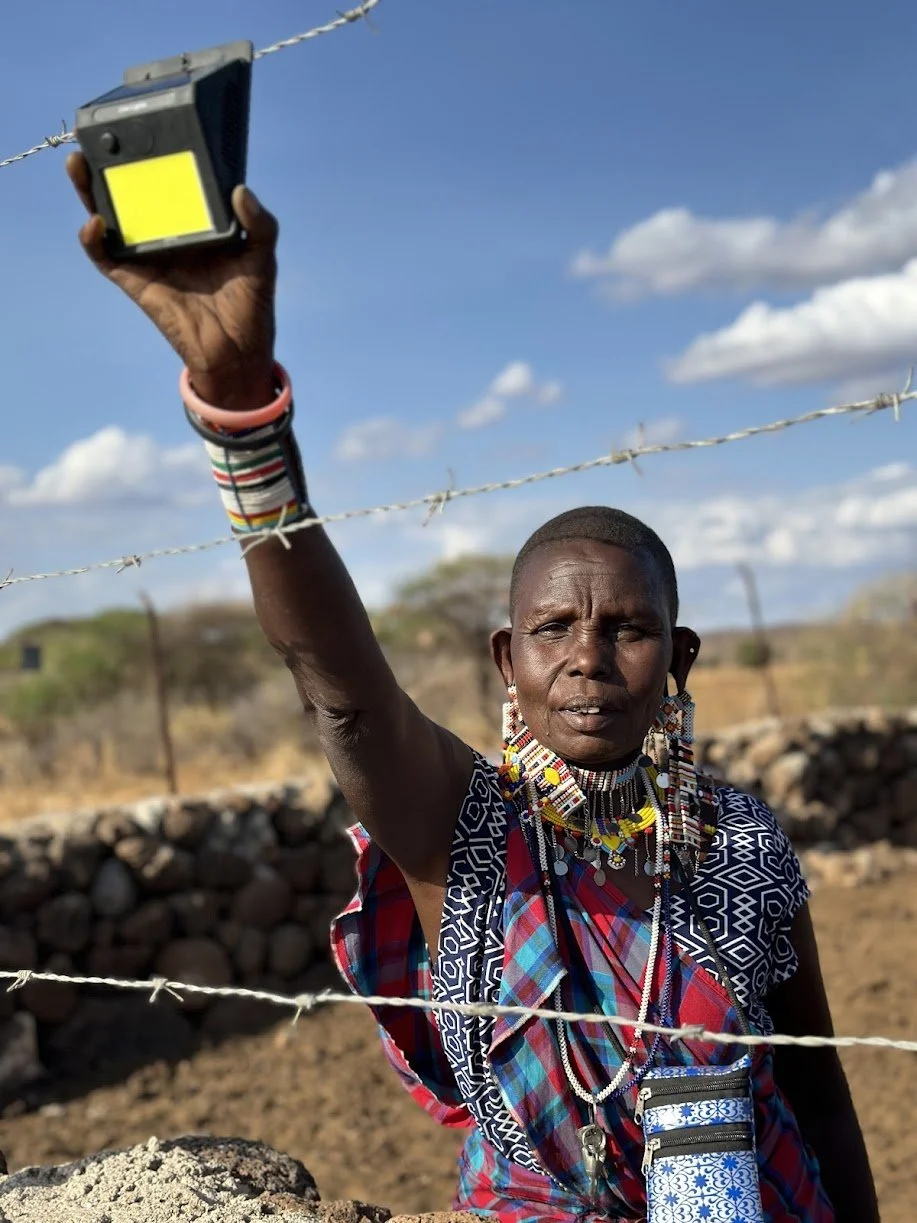Lion Lights by Richard Turere
What’s Lion Lights?
Lion Lights: Innovating for Conservation
First Place, Young Inventors Prize, 2023
In Kenya, lion populations have plummeted from 15,000 to just 2,500 in two decades, driving Africa’s largest land predator towards extinction. Poaching and habitat loss have heightened conflicts with humans as lions increasingly turn to livestock for food.
Richard Turere, from the Maasai community of Kitengela, began protecting his family’s cattle at age nine. After losing around nine cows weekly to lion attacks, he sought a solution. Noticing that lions stayed away when he patrolled with a flashlight, he realised he could trick them into thinking he was always nearby.
Turere experimented with electrical devices to create an LED flashing light system to deter lions from livestock enclosures. His initial invention was a basic indicator box, but he refined it by programming unique light sequences to prevent lions from recognising patterns. The system relies on solar energy, with wind energy as a backup, and by placing lights about 15 metres apart, Turere effectively mimicked human movement to scare lions away.
Local Solution, Global Impact
In 2013, Turere founded the Lion Lights organisation to implement this automated lighting system in areas where human-wildlife conflict often leads to retaliatory killings of predators. Today, his invention is utilised in over 2,000 homes across Kenya, as well as in Tanzania, Botswana, Namibia, Argentina, and India. The system effectively deters various wild animals, including leopards, pumas, hyenas, and even elephants. While lions remain classified as vulnerable, their numbers in Kenya have begun to recover, thanks in part to local conservation efforts and the Lion Lights project.
Turere’s inspiring journey gained recognition through a TED Talk he delivered at age 13. He won a scholarship to Brookhouse School for his A-Levels and later earned a bachelor’s degree in global challenges and wildlife conservation. Turere attributes his success to his unwavering determination: “I want this story to inspire young kids that they too can make a difference. If I could do it coming from a community with no education and no resources, then anyone can change this world.”
Colin previously spent 2 months in Africa working closely with communities. (Sept - Oct 2024)



